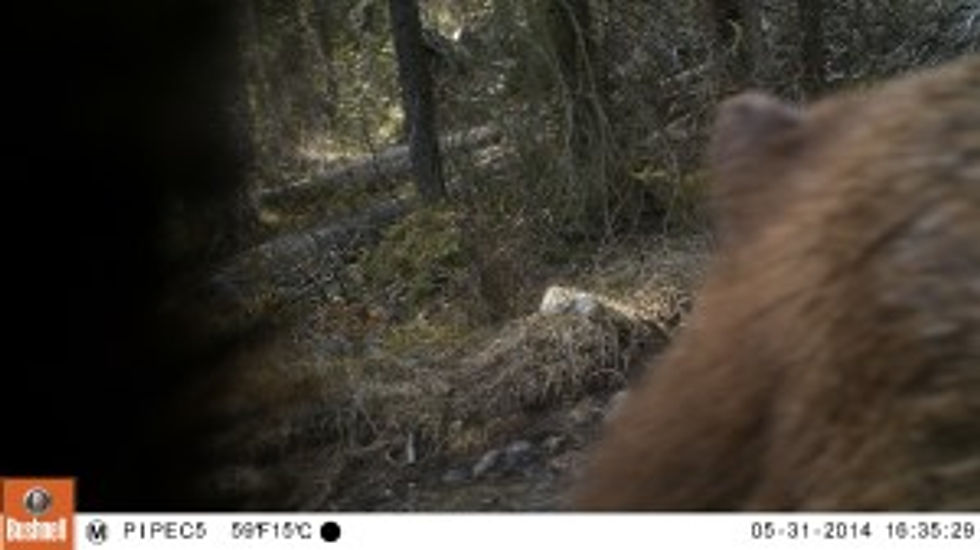The Wolf Ate My Homework
- GRR's blog

- Oct 9, 2014
- 3 min read
From the time I was a kid, there’s a few standard excuses of why the homework didn’t get done. An old familiar is that the dog ate it. I didn’t have a dog growing up, so I never got to use that excuse until now… except now it’s a wolf.
The Window into Wilderness
I like to think of the remote cameras a window in to the wilderness. With remote cameras we get a glimpse in to the life of animals and even plants that we wouldn’t normally see. Remote cameras are being used for many scientific studies because of their non-invasive nature. They are a way for us behavioural ecologists to study wildlife without impacting their behaviour… or are they?
Remote cameras are silent (to us) and they use infrared light to take pictures at night so they aren’t super obvious to the animals. They are camouflaged and designed to blend into the background. And most of the time all that is true. But animals DO see the remote cameras and they DO sometimes change their behaviour in response to them.
As I start to get more and more data from the remote cameras, I’m getting more of an understanding of how animals perceive these cameras. Some are curious and investigate the camera, like this little bear around Lake Louise this spring.
In the first picture, the bear is walking in the opposite direction and something happens for it to see the camera and feel the need to check it out. The second photo is his eye right next to the camera… then who knows what the third and fourth are… his mouth, his ear? Satisfied the camera is ok, the last photo is of the bear walking away.

Others think the camera is worth showing off for, like this bull elk near Banff last year.

Sorry. I know those ones are a little dark. But somehow this bull elk knows the camera is there and has to come over just to make sure it knows that he’s boss right now. I love this sequence.
Others think the camera is a good spot to scratch, like this cougar from Yoho this year who actually changed the direction the camera was pointing on the tree.

There isn’t much to see in these photos because the cougar is rubbing up against the side of the camera. What is most interesting to me about this sequence is that the cougar actually rubbed so hard against the camera that it rotated it around the tree so it was facing in a different direction.
Others obviously don’t like the camera, like this wolf who literally ate my homework this past week in Kootenay.

What these pictures don’t show the damage to the camera that these wolves caused. They literally ripped the camera off the tree and then bit it a few time (the white picture) and then walked away leaving it on the ground pointed at the
sky… so that’s that.
And then there are the bears. Check out this female who was very curious about the camera but then took her little cubs on their way after checking it out.

One Important Lesson
I’ve learned that my window into the wilderness isn’t always welcome or sometimes it’s a point of curiosity. But for us as scientists to assume that animals aren’t seeing these cameras or aren’t changing their behaviour (even a little) in response to them being there doesn’t hold true all the time. They’re a lot more perceptive than we think…
I’m learning much more about these animals through these cameras than I thought I would. And I love that.



Comments